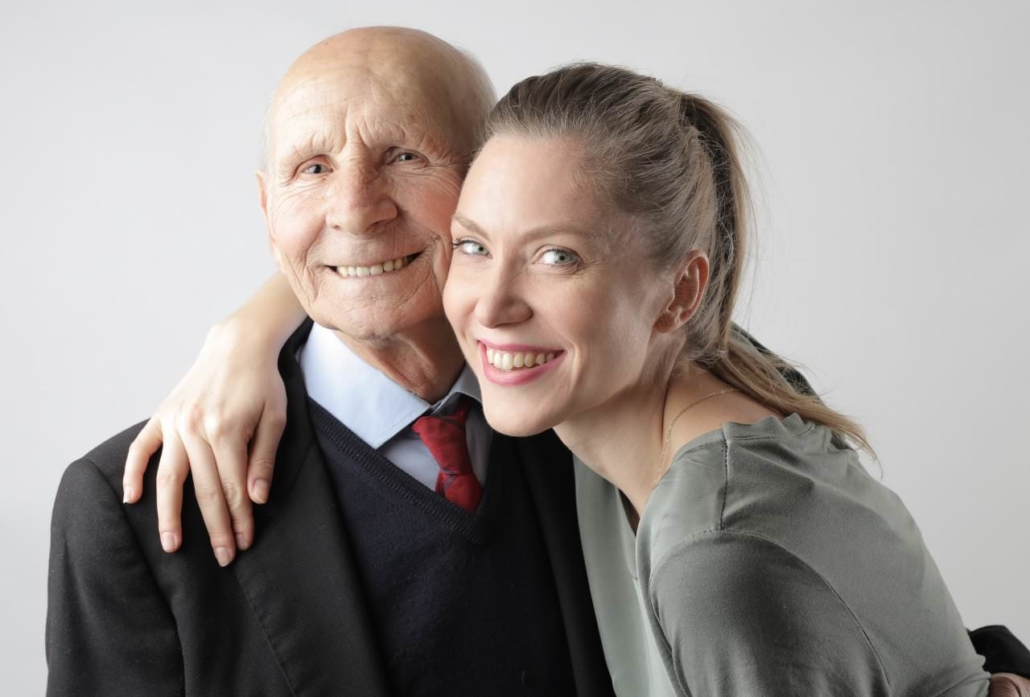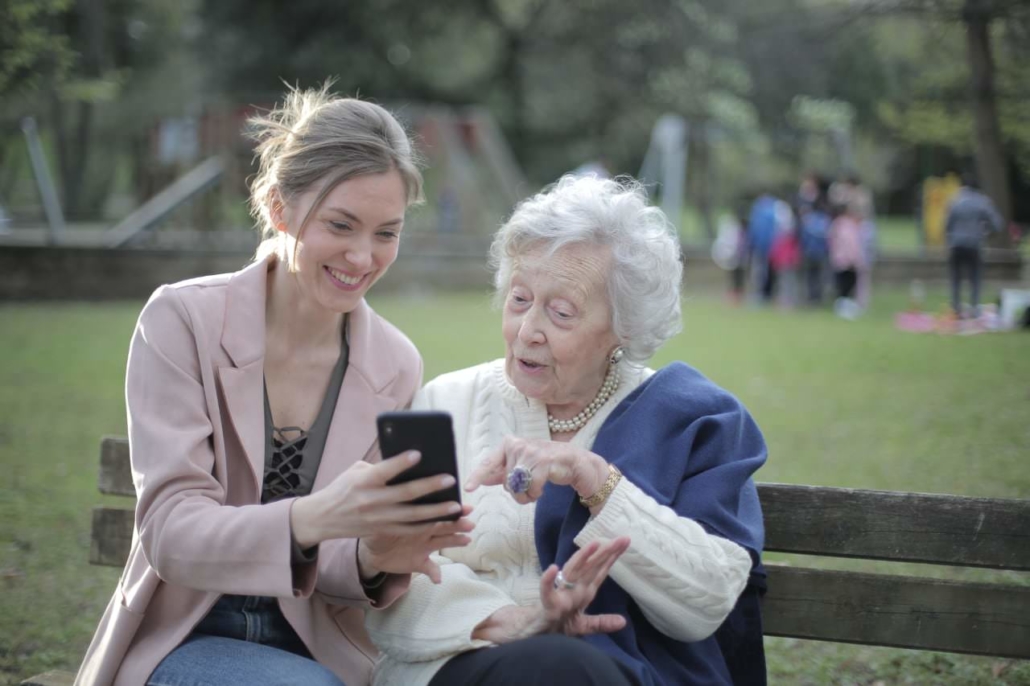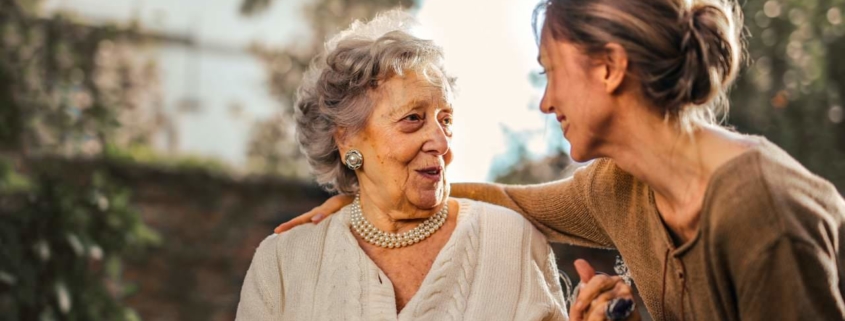Things to reflect on after holiday visits with older adults
During the winter holiday season many of us were lucky enough to visit older relatives, while taking all the necessary precautions to keep ourselves and our loved ones safe from COVID-19. Festive gatherings are a big part of family life and something most of us look forward to every year. The holiday season is joyful and familiar yet complex and demanding at the same time. Grocery lists grow larger, meals become more elaborate, we interact with more people and there are a myriad of things to remember: calling all of our friends and family for holiday wishes, mailing all those cards and gifts etc. While this complexity is usually a welcome change from our normal daily routine, it can be challenging for many older adults and it can often highlight health issues that would otherwise have remained undetected during the rest of the year.
Familiarity and repetition make our lives easier as most of us settle into our habits and daily schedules. These schedules, reinforced through daily repetition, become second nature to us and allow us to lead complex lives with minimal effort. Furthermore, their familiarity makes us feel safe and in control. Indeed, they provide us with a controlled and safe daily life even during those times when we might be physically or mentally exhausted and unable to expend much thought or effort on our daily chores. Normally we can cope easily with deviations from our set schedules and habits with a bit of effort and we often relish this change as something novel and refreshing. That’s why people go on holidays and take up new hobbies. At the same time, older adults are often faced with health issues that can affect their body and mind and therefore their ability to cope with change in their daily lives. In that case, change is no longer refreshing and inability to cope with it can lead to disturbances in an older adult’s daily life. Thus, many older adults may stick to familiar routines and schedules in order to mitigate the effect of health issues on their lives and furthermore they are often unaware that they’re using familiarity as a means to mitigate the effects of declining health.
Declining health can often remain invisible due to the often-reduced demands of our usual daily life but also due to its usually gradual nature. Older adults themselves and people sharing the same home with them may often fail to spot the decline as it is usually mitigated by subtle changes in activities and routines that often go unnoticed. People who visit an older adult sporadically on the other hand may be able to spot decline more easily as the changes may be more pronounced in the span of many weeks or months. Thus, people who visit their older relatives sporadically should be on the lookout for signs of decline especially during the holiday season which places increased demands and stress to older adults. There are many signs one should look out for but most of them fall under the following categories:

- Home environment: Modern living is complex and taking care of all the chores around the house can be physically and mentally demanding. As people cope with declining health, they tend to neglect chores starting from the ones that are less important for their daily functioning. As decline progresses one can neglect more chores to the point where they might be unable to live safely on their own. One should always use a person’s previous status as a reference point. An unkempt lawn might not be concerning if that person never cared about lawn maintenance but it can be a warning sign if that person used to have a pristine lawn a few months ago. The same is true for general tidiness around the house. On the other hand, expired medication, scorched cookware and spoiled food indicate behaviors that can present clear danger to the health and well-being of the individual regardless of their previous status. Changes in the home environment are usually easy to spot so they are often the first signs of decline noticed by friends, family and acquaintances.
- Physical appearance and grooming: The way our loved one looks and dresses can also alert us to possible decline. Significant weight loss often accompanies physical and cognitive decline. An older adult may lose weight due to illness or through the effects of medication. At the same time, cognitive decline can make the preparation of a meal too challenging and confusing for an older adult and even cause them to neglect eating. Unkempt appearance, dental issues and a general lack of hygiene can also signify possible cognitive decline as the older adult may be experiencing difficulties in dressing and grooming and they may be forgetting or be unable to bathe and brush their teeth.
- Balance issues and fear of falls: Balance and gait issues are very common signs of decline in older adults. An older adult may have difficulty maintaining their balance and they may compensate by changing walking patterns so they are close to things they can lean on or hold on to in case of unsteadiness. Their gait can grow shorter and they may limit walking to mitigate the possibility of a fall. As an older adult may sometimes be unwilling to admit or discuss their balance issues and fear of falling, noticing such early signs of mobility issues can allow a relative to open up the subject and help the older adult get the appropriate care, support and physical rehabilitation if needed.
- Mental and cognitive issues: Changes in cognition and mood can signify the onset of neurodegenerative diseases such as dementia or mood disorders such as depression. Depression in older adults often goes undiagnosed since the person experiencing it may not feel or exhibit the usual sadness that people often associate with depression. It usually appears in subtler ways which include withdrawal, loss of interest in hobbies and favorite pastimes and a lack of interest for house care and personal grooming. At the same time sudden mood swings and/ or aggression can be a sign of mental or cognitive disorders and they may also be caused by physical issues such as dehydration and improper use of prescribed medicine. Mental and cognitive disorders can be frightening thus when someone is worried that an older adult might be suffering from them it is best to reach out to a brain health expert for a thorough assessment so they and their loved ones can receive appropriate care and support.
The holiday season is first and foremost a time to relax and spend time with our loved ones. We all need time to enjoy ourselves, worry less and get away from all the things that are stressing us. This holiday season doesn’t have to be stressful and being vigilant about the health and well-being of our loved ones doesn’t mean we should over-analyze everything and stress about every little detail. If we trust or instincts, our knowledge and our connection with our loved ones, we can go on enjoying the holidays with them while remaining alert enough to spot any obvious or worrying changes.

What can I do?
- As an older adult: Be willing to hear the concerns of your loved ones. Don’t view any possible health issues as weaknesses or personal shortcomings. They can be frightening or exhausting at times but they can be managed with the help of your loved ones and support from experts. Engage with your family and friends and allow them to provide you with the care, love and support you need and deserve.
- As a relative: Reflect on any possible signs of physical or cognitive decline when you visited older loved ones. Try to compare their current situation to their previous status and trust your instinct if anything seemed odd or worrying. Be open and talk to them calmly and supportively. Don’t be afraid to reach out to an expert who can help you, your loved one and your whole family identify and mitigate any issues.
- As an assisted living or nursing home owner / manager: Reflect on cases of residents who may have experienced difficulty with the holiday season schedule and activities. Talk to them about their experience and difficulties and reach out to their family if needed. Acknowledge the concerns of your residents’ relatives and listen to their feedback after visits. They know the personality and habits of a resident and can alert you if they feel something is concerning. Reach out to experts if needed.



